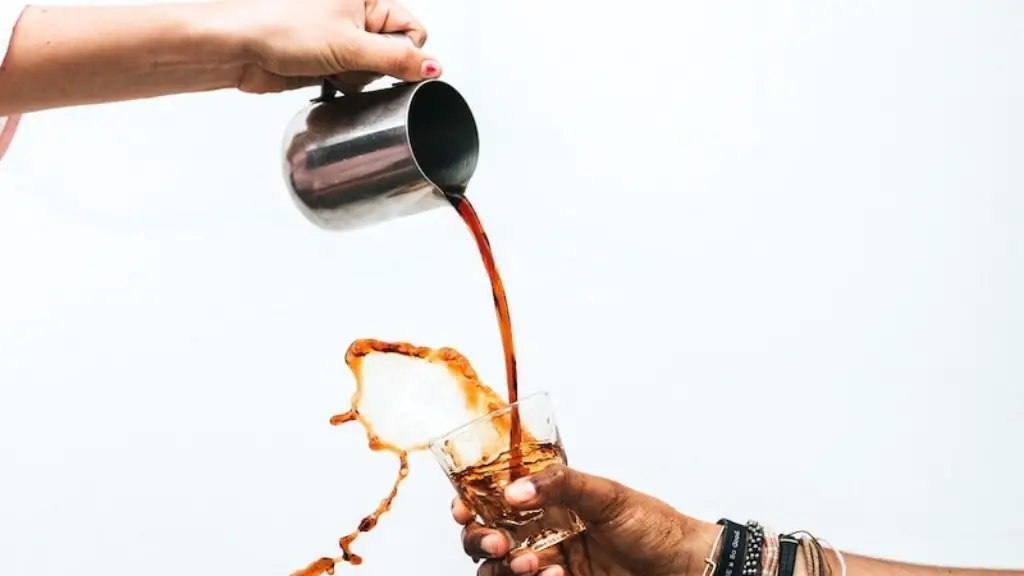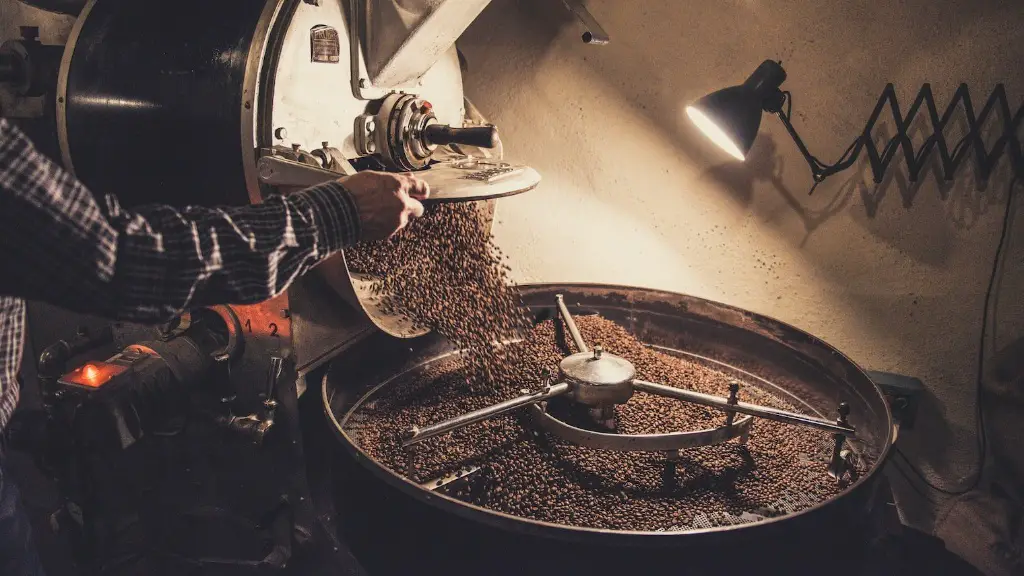Overview Of Coffee Beans At Starbucks
When thinking about buying coffee, Starbucks is often one of the first brands to come to mind. The American coffeehouse chain, which was founded in Seattle, Washington, in 1971, is one of the most recognized and widespread coffee chains in the world. With approximately 31,000 outlets across the globe, Starbucks is a well-known go-to for coffee, tea, and other snacks. Depending on your preference, Starbucks provides a variety of different types of coffee beans, including Arabica and Robusta. Arabica beans, which are grown at higher elevations, generally offer a more expensive, but more flavorful cup of coffee. Robusta beans, on the other hand, are cheaper but provide more of the intense and bold flavors that darker roasts are known for.
The Price Of Coffee Beans At Starbucks
The cost of coffee beans at Starbucks varies depending on the bean, the quantity purchased, and the brewing method. Purchasing a pound of coffee beans at Starbucks usually costs anywhere from $14 to $20. For example, a pound of Starbucks medium roast coffee beans is currently listed at $17.95. Prices may vary slightly based on packaging and the market. For larger quantities, such as the Verismo-branded coffee pods, customers may pay up to $22 for a box of 48 pods. In addition to traditional packages of coffee beans, customers can also purchase coffee-related products, such as a coffee press or coffee maker, from Starbucks. These prices can range from $20 to $200 depending on the product.
How To Save Money On Coffee Beans At Starbucks
For customers looking to save money on coffee beans at Starbucks, there are a few strategies that can help. One way to reduce the cost of a Starbucks coffee purchase is to look for promotions or specials that the company might offer on a particular product. Customers should also consider purchasing coffee beans in bulk, as Starbucks often has discounts for larger purchases. Finally, customers can take advantage of the company’s rewards program, which gives customers points for every dollar spent. These points can then be used to save money on future purchases.
Alternatives To Purchasing Coffee Beans At Starbucks
In addition to buying coffee beans from Starbucks, customers can also purchase beans from other coffee retailers around the world. Specialty coffee shops, as well as online retailers, often offer coffee beans of superior quality at more reasonable prices than Starbucks. For those who are up for an adventure, customers can look for coffee beans at local grocery stores, markets, and even farmers markets. Shopping locally can be a great way to save money and support the local economy.
Starbucks’ Impact On The Coffee Industry
Since its inception, Starbucks has had a major impact on the global coffee industry. The company has popularized specialty coffee, which is generally considered to be higher quality than regular, mass-produced coffee. Their expansion into many countries around the world has also allowed Starbucks to create unique blends of coffee beans from different regions, giving customers the chance to try new flavors not typically found in their own areas. Furthermore, Starbucks has greatly increased the availability of coffee and provided a platform for people to purchase it, even in smaller cities where coffee shops may not be as prevalent.
The Future Of Coffee Beans At Starbucks
It is unclear what the future holds for coffee beans at Starbucks, especially considering the recent changes the company has gone through. In the past few years, Starbucks has made efforts to improve their offerings by using fewer preservatives in their products and providing more organic and sustainable ingredients. Additionally, the company has introduced a variety of options for customers, including cold brew, nitro cold brew, and iced coffee. These changes demonstrate that Starbucks is always trying to meet the demands of their customers and remain competitive in the industry.
The Sustainability Of Coffee Beans From Starbucks
When buying coffee beans from Starbucks, customers can rest assured that they are contributing to a more sustainable future. Starbucks is committed to sourcing their beans in an ethical manner, working with farmers to ensure that the coffee is grown in a way that minimizes negative environmental impacts. Furthermore, Starbucks composts any used coffee grounds and reuses the packaging materials for their products wherever possible. Finally, the company participates in programs to promote and develop responsible coffee sourcing and trading, which help support local communities.
The Impact Of Starbucks On Other Coffee Industries
The success of Starbucks has had a substantial impact on other coffee industries around the world. For example, smaller coffee shops may struggle to compete with Starbucks’ reach and pricing. Some smaller coffee shops have chosen to focus more on quality and flavor than on competing with the larger chains, while others have opted to emphasize the experience, such as providing cozy atmospheres and cozy seating arrangements, in order to stand out. Furthermore, local coffee beans may suffer as Starbucks continues to expand its presence in more global markets.
The Positive Impact Of Starbucks On The Coffee Industry
In spite of the potential challenges posed by Starbucks, the company has had a positive impact on the overall coffee industry. Starbucks’ commitment to providing high-quality coffee and its focus on sustainability have pushed other coffee producers to adhere to similar standards. The brand has also sparked an overall increase in coffee consumption, leading to a rise in coffee production and sales. Additionally, Starbucks’ commitment to empowering coffee farmers and producing ethically-sourced coffee has improved living standards in some coffee-producing countries by providing farmers with higher wages and better working conditions.


